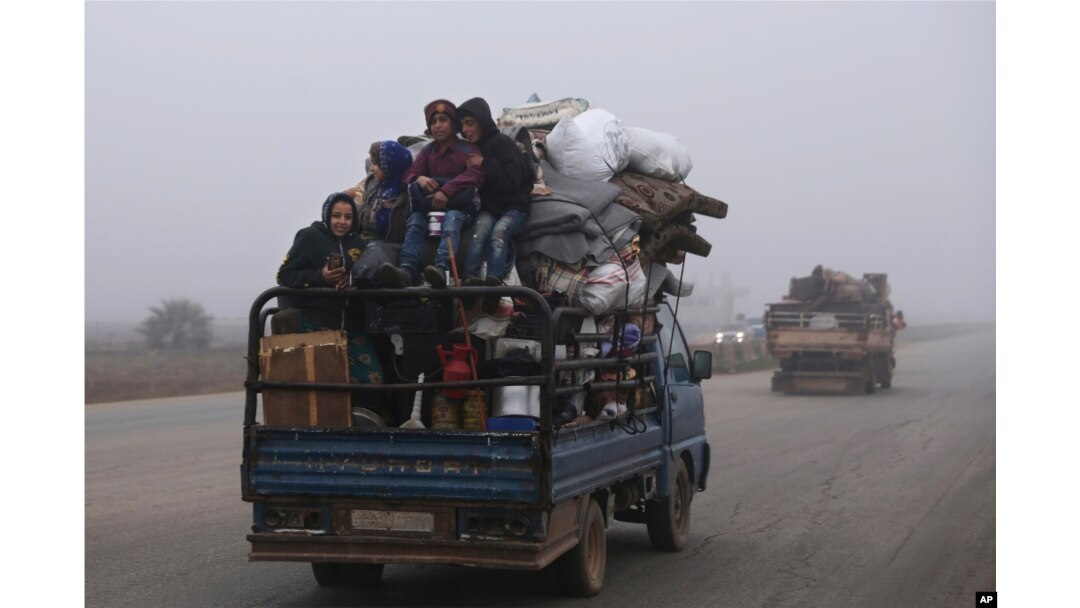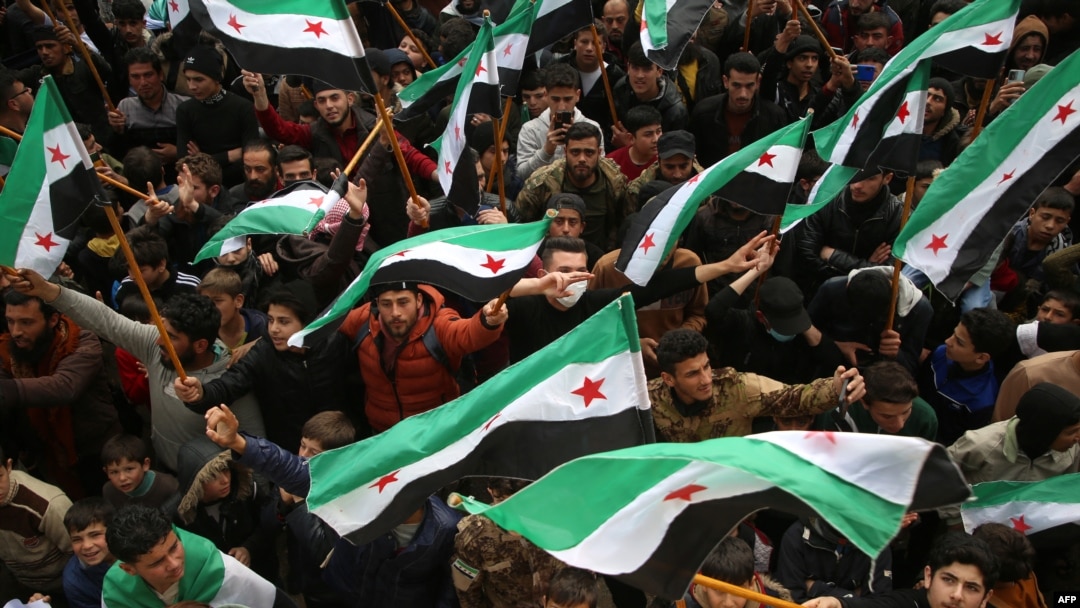As Syria enters its 14th year of civil war with no political resolution in sight, United Nations aid agencies are appealing to the international community to remember the plight of millions of people who continue to suffer from violence, devastation, destitution and abuse.
Thirteen years of crisis have taken an unimaginable toll on the Syrian people, and U.N. agencies warn the crisis continues to wreak havoc on the population, worsening an already dire humanitarian situation.
In marking the grim anniversary, Humanitarian Coordinator in Syria Adam Abdelmoula and Regional Humanitarian Coordinator for the Syria Crisis Muhannad Hadi issued a joint statement Friday warning that “the level of needs has never been higher.”
They estimate that 16.7 million people require humanitarian assistance, many of them victims of last year’s destructive earthquakes, which have created a “crisis within a crisis.”
“Today, a record number of people go to bed hungry every night, the health care system is unable to adequately meet people’s needs, basic services are unavailable, and millions of children remain out of school,” they said.

FILE - Civilians ride in a truck as they flee Maaret al-Numan, Syria, ahead of a government offensive on Dec. 23, 2019.
Additionally, they note that after 13 years of warfare, Syria is facing some of the worst conflict-related violence in years, “leading to civilian casualties, displacement and destruction across the country.”
The United Nations reports more than 350,000 civilians have been killed and more than 12 million people have been forced to flee for safety inside and outside the country.
“The displaced have suffered hugely and continue to,” Matthew Saltmarsh, U.N. refugee agency spokesperson, told journalists Friday in Geneva, noting that now more than ever, Syrian refugees and internally displaced people need the world’s support.
He said that more than 5 million Syrians have taken refuge in five neighboring countries, while more than 7.2 million are displaced inside Syria.
“These numbers are huge,” he said. “Back in 2015, Syrian refugees dominated the headlines as they moved in search of safety. Sadly, they no longer command that attention, and their plight seems to have been relegated.”
Although Syria perhaps has been forgotten, he said, “Syria remains the world’s largest forced displacement crisis” and cannot be ignored.
He said UNHCR’s humanitarian operations are suffering from a severe cash crunch. He noted that 6% of the agency’s $466.6 million appeal to aid displaced Syrians inside the country has been received, and 10% of its $1,49 billion appeal to assist refugees and host communities has been funded.
“The decline in funding has forced UNHCR and other humanitarian agencies to make difficult choices about what and who to prioritize,” he said, warning that the lack of funding “risks pushing children into labor, gender-based violence, early marriages, school dropouts.”
UNICEF reports that nearly 7.5 million children in Syria need humanitarian assistance, “more than at any other time during the conflict.”
FILE - Syrian children read books in a refugee camp near Amman, Jordan, on June 5, 2023.
The U.N. children’s agency warned that repeated cycles of violence and displacment, a devastating economic crisis, disease outbreaks and last year’s earthquakes “have left hundreds of thousands of children exposed to long-term physical and psychosocial consequences.”
It said more than 650,000 children under the age of 5 are chronically malnourished, and a recent survey in northern Syria found that 34% of girls and 31% of boys suffered from psychosocial distress.
“The sad reality is that today, and in the days ahead, many children in Syria will mark their 13th birthdays, becoming teenagers, knowing that their entire childhood to date has been marked by conflict, displacement and deprivation,” said Adele Khodr, UNICEF regional director for the Middle East and North Africa.
“A generation of children in Syria has already paid an unbearable price for this conflict,” she underscored. “Ultimately, children need a chance. They need a long-term peaceful solution to the crisis.”
That assessment is shared by Geir Pedersen, U.N. special envoy for Syria, who, in marking “this solemn anniversary of the conflict,” said that “only the unwavering pursuit of a political solution to end this conflict can restore hope to the Syrian people.”
Since he was appointed to his post in 2019, Pedersen has worked doggedly to draft a new constitution as part of a U.N.-mediated negotiated peace process for Syria. Previous meetings of the so-called Syrian Constitutional Committee have failed to make any inroads in the process.
Prospects appear bleak. The committee last met in June 2022. Pedersen says he hopes to convene another meeting in Geneva next month. However, the proposition already has encountered a stumbling block.
While the opposition Syrian Negotiations Committee has accepted the invitation to attend the upcoming meeting, his spokesperson Jennifer Fenton, told journalists in Geneva that “Pedersen has also received communication from the co-chair nominated by the Syrian government declining the invitation.”
She said that Pedersen soon will travel to Damascus.


